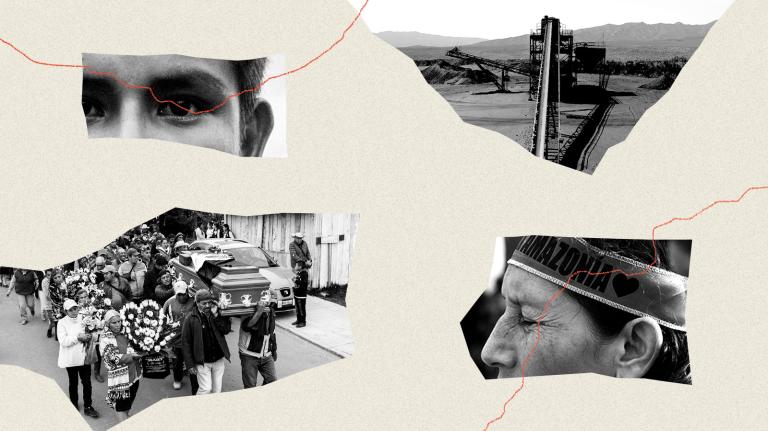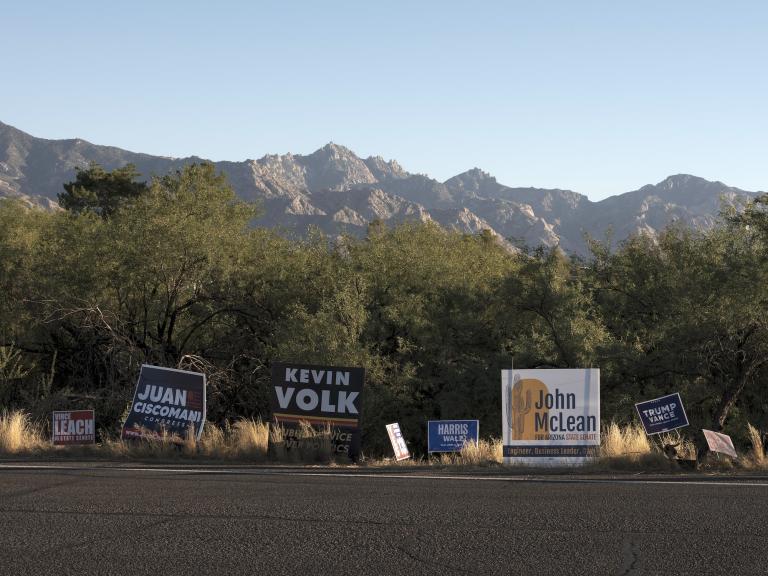 U.N. World Environment Day is being held in San Francisco this year, from June 1-5. The associated Green Screen Environmental Film Festival kicks off on June 1 with Oil on Ice, the award-winning documentary on the Arctic National Wildlife Refuge by co-directors Bo Boudart and Dale Djerassi.
U.N. World Environment Day is being held in San Francisco this year, from June 1-5. The associated Green Screen Environmental Film Festival kicks off on June 1 with Oil on Ice, the award-winning documentary on the Arctic National Wildlife Refuge by co-directors Bo Boudart and Dale Djerassi.
Oil on Ice is a handsome film, impeccably made. Virtually every frame contains an image of beauty: One goal at which it unquestionably succeeds is to refute the obscene contention by certain Alaska politicians (who shall remain unnamed) that the Refuge is nothing but a snow-seared wasteland. It also sparks a strangely wistful sense of wonder that the U.S. still contains an untouched swath of territory, as one commentator puts it, "just for the animals." That is, when you think about it, quite a remarkable thing in this day and age. Once surrendered, it can never be recovered.
The film is a slim 40 minutes long, and it attempts to cover a great deal of territory. It indicts the oil industry for the damage done elsewhere in Alaska, particularly the Exxon-Valdez spill; it visits indigenous Alaskan communities and illustrates their fragile relationship to wildlife migratory and spawning patterns that could be warped by new oil development; it celebrates the variety of wildlife that exists year-round in the Refuge, and in particular the dazzling explosion of life that descends on the North Shore during the four-month warm season; and it investigates the politics of oil, showing how powerful oil service companies and Alaskan politicians are driving the debate, obscuring the fact that changes in auto technology could preserve far more oil than could be pulled from the Refuge.
Within its time constraints, none of these arguments can be made decisively, but their accumulation is ultimately persuasive.
None of it will be new to those who have been following the issue, though some factoids may surprise. What Oil on Ice does is present the various facets in compact, digestible, gorgeous form. The website also contain volumes of background information and resources for further action — in particular note the short introductory film, notification on upcoming screenings, and of course, a place to buy the DVD.
It’s an all-around laudable undertaking and deserves wide exposure.
My one complaint is about tone:
This is a decorous, PBS-style documentary, complete with stentorian-voiced narrator and ominous background cello music. It’s like can be seen on public television or the Discovery Channel day and night. It’s a Serious Subject, you see, about which we should all frown, stroke our chins, and speak in tones of umbrage with our compatriots at the coffee shop.
It doesn’t, in short, make you mad. It will easily capture the interest of people like me, who are already invested, but I can’t imagine it competing against Fear Factor or Desperate Housewives.
I suppose that was a deliberate choice. Perhaps the film is meant to be shown to decision-makers and power-brokers, the kind who might be put off by a more incendiary style.
But what decision-maker has not made up his/her mind at this point? If the objective merits of the case were decisive, Refuge drilling would have been abandoned long ago. What’s driving it forward are the financial interests of a few large corporations and influential politicians, along with the unending culture war being waged by the Right (somehow environmentalism got caught up in that).
The only way to change the equation is to generate a genuine upswell of public outrage and anger. We need to take control of what is currently a tepid and misleading debate in the popular media.
It may be unfair to compare every documentary to the work of Michael Moore, but if there’s one thing Moore did it’s show that a documentary can be entertaining. It can be funny and provocative, juicy and infuriating. More to the point, it can be widely seen.
Oil on Ice will ultimately add fuel to the fire of some activists, but it’s unlikely to spread beyond those confines.
It’s a shame. As the governor of Alaska freely admits in the film, if the Refuge isn’t developed within 10-15 years, the Prudhoe Bay field will decline and the Alaska Pipeline will be dismantled, setting the Refuge forever off limits. We don’t have to win this battle permanently, we just have to win it for 15 more years. But we’re on the verge of losing. What we need now is some pissed off Average Citizens.

